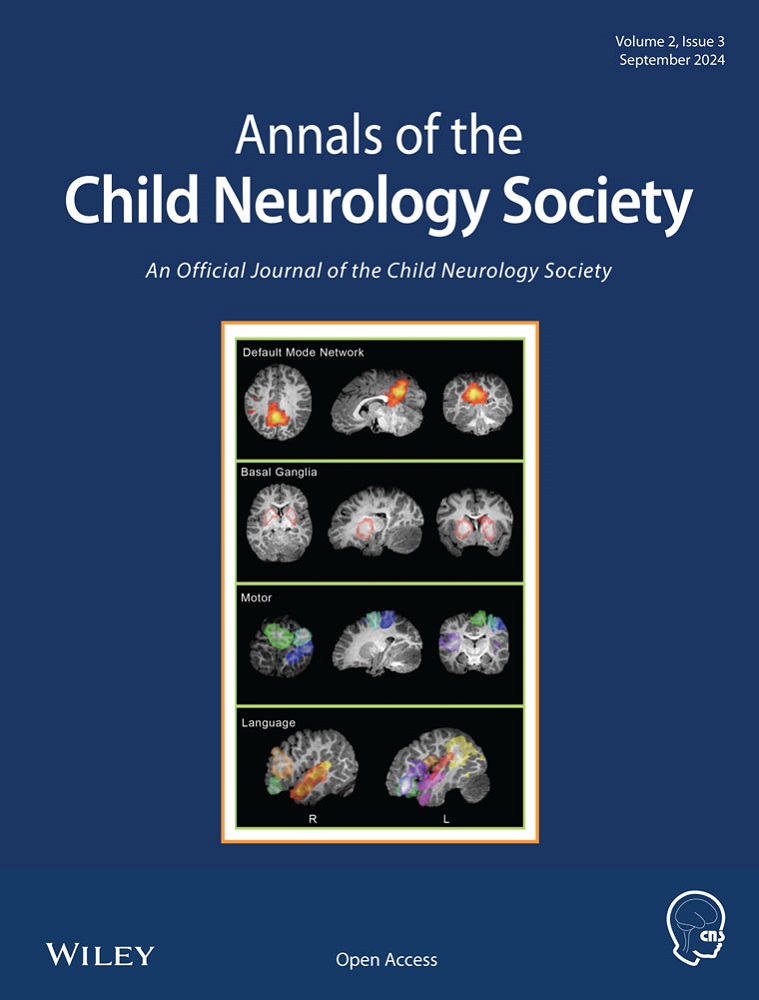Rett syndrome: The Natural History Study journey
Abstract
Understanding clinical features and disease progression of Rett syndrome (RTT) and establishing clinical trial readiness was enhanced by the RTT Natural History Study (NHS). The NHS benefited from two key developments: one, the Orphan Drug Act passed by Congress in 1983 defining criteria for rare disorders in the United States and creating opportunities for pharmaceutical companies to develop products for individuals with rare disorders, and two, the Rare Diseases Act of 2002, which established the National Institutes of Health Office of Rare Diseases and provided research funding. Funding for the RTT and related disorders NHS was obtained in 2003, creating a broad network of experienced clinical investigators across the United States and producing critical results not only for RTT but also for related disorders: CDKL5 deficiency disorder, FOXG1 disorder, and MECP2 duplication syndrome. Longitudinal information from over 1800 participants (more than 1600 diagnosed with RTT) led to multiple reports describing their clinical features and natural progression and identified putative biomarkers and clinical outcome measures. Establishing clinical trial readiness assisted in evaluating the first FDA-approved medication for RTT in 2023 and continues to provide opportunities to develop potentially life-altering therapies. The experiences of the RTT NHS journey provide informative guidance for studying other rare neurological disorders. These lessons include positive features of developing productive collaborations focused on improving lives of people and families with RTT and related disorders, as well as lessons learned through retrospective analysis for improving overall conduct of natural history studies in rare disorders.
Conflict of interest statement
Alan K. Percy has a consulting relationship with Acadia Pharmaceuticals, Anavex, Ionis, Neurogene, and Taysha and has previously had a contract researcher relationship with Acadia Pharmaceuticals. Timothy A. Benke has received research funding from GRIN2B Foundation, the International Foundation for CDKL5 Research, Loulou Foundation, the National Institutes of Health, and Simons Foundation; consultancy for Alcyone, AveXis, GRIN Therapeutics, GW Pharmaceuticals, the International Rett Syndrome Foundation, Marinus Pharmaceuticals, Neurogene, Ovid Therapeutics, and Takeda Pharmaceutical Company Limited; clinical trials with Acadia Pharmaceuticals Inc., GW Pharmaceuticals, Marinus Pharmaceuticals, Neurogene, Ovid Therapeutics, and Rett Syndrome Research Trust; all remuneration has been made to his department. Eric D. Marsh is site PI for Stoke Therapeutics, Zogenix Pharmaceuticals, Acadia Pharmaceuticals, Marinus Pharmaceuticals, Takeda Pharmaceuticals, Epygenix Pharmaceuticals, SK Life Pharmaceuticals, and Ionis Pharmaceuticals. He has received research support from the NIH, Penn Orphan Disease Center, International Rett Syndrome Foundation, International Foundation for CDKL5 Research, and Curaleaf Inc.; is a consultant for Acadia Pharmaceuticals and Novartis Pharmaceuticals; and has prepared an educational program for Medscape and France Foundation. Jeffrey L. Neul has received research funding from the National Institutes of Health, the International Rett Syndrome Foundation, and Rett Syndrome Research Trust; served as investigator for clinical trials conducted by Acadia Pharmaceuticals, GW Pharmaceuticals, Neuren Pharmaceuticals, and Newron Pharmaceuticals; received personal consultancy for Acadia Pharmaceuticals Inc, Analysis Group, Anavex, AveXis, GW Pharmaceuticals, Hoffmann-La Roche, Ionis Pharmaceuticals, Myrtelle, Neurogene, Newron Pharmaceuticals, Signant Health, and Taysha Gene Therapies, and the preparation of CME activities for the France Foundation, MedEdicus, Medscape, PeerView Institute, and TotalCME; served on the scientific advisory board of Alcyone Lifesciences; was a scientific cofounder of LizarBio Therapeutics; and a member of a data safety monitoring board for clinical trials conducted by Ovid Therapeutics and Ultragenix.




